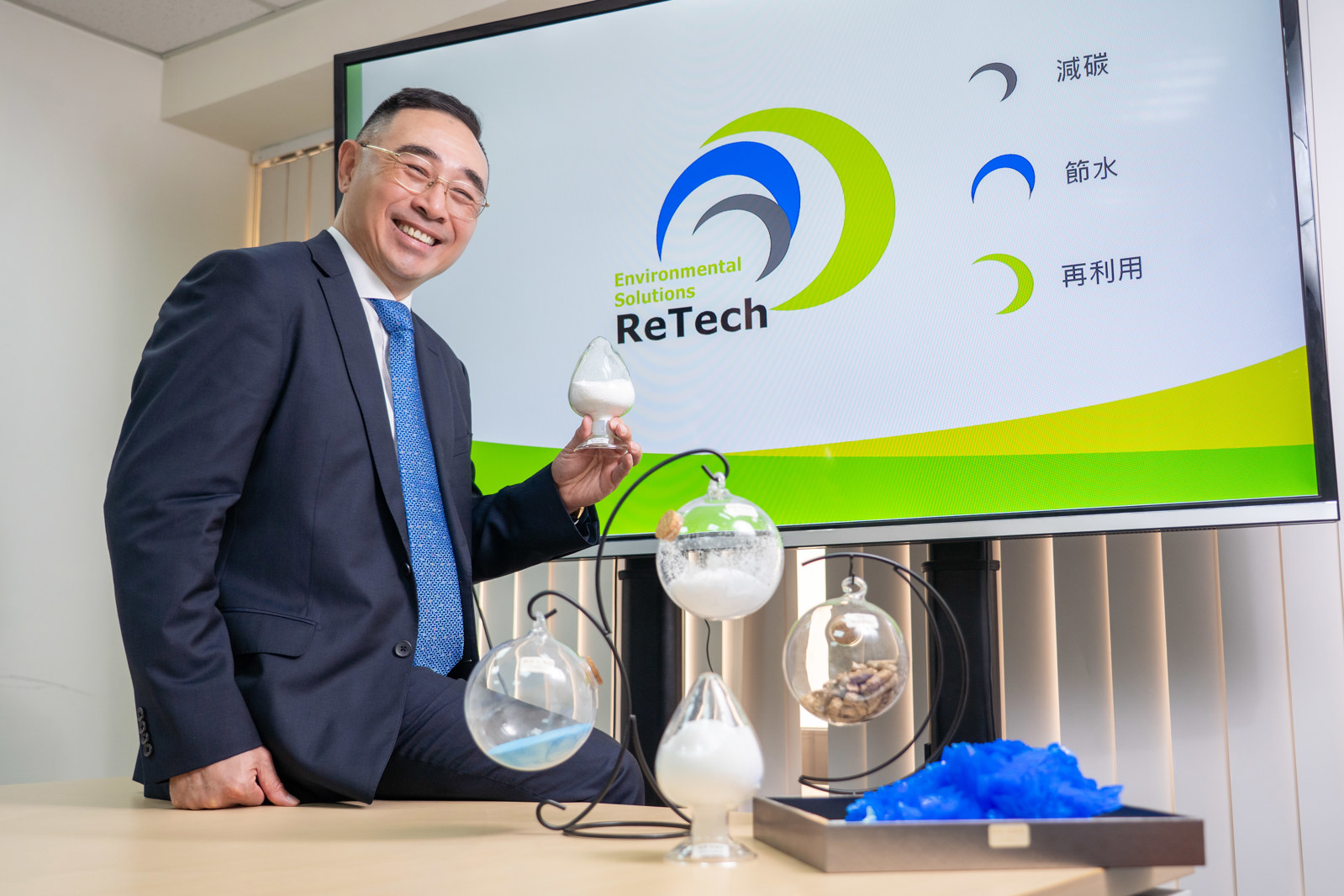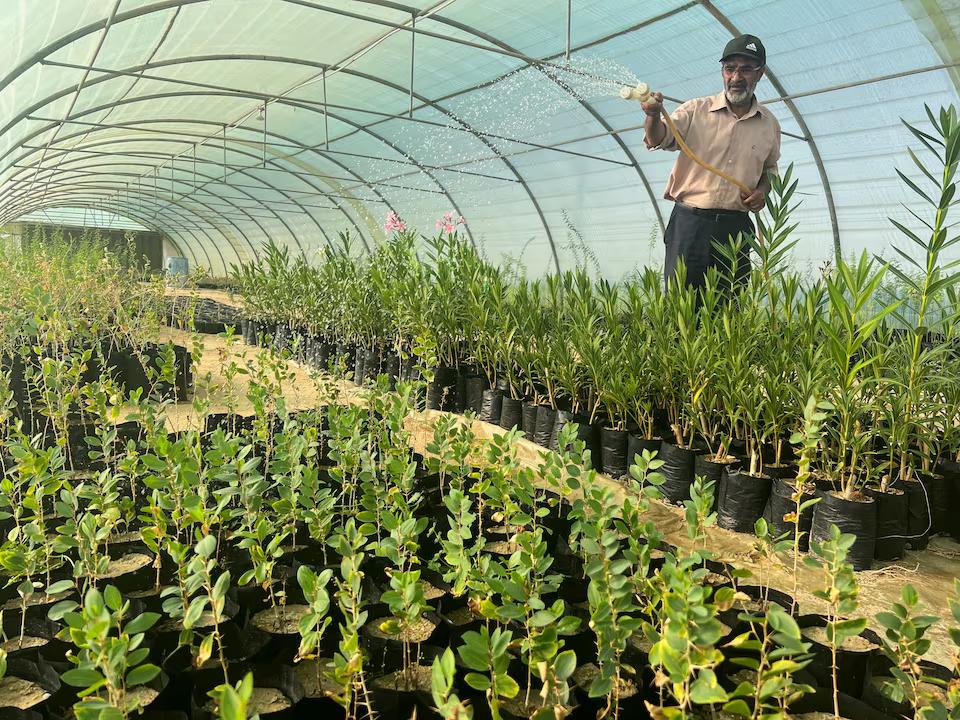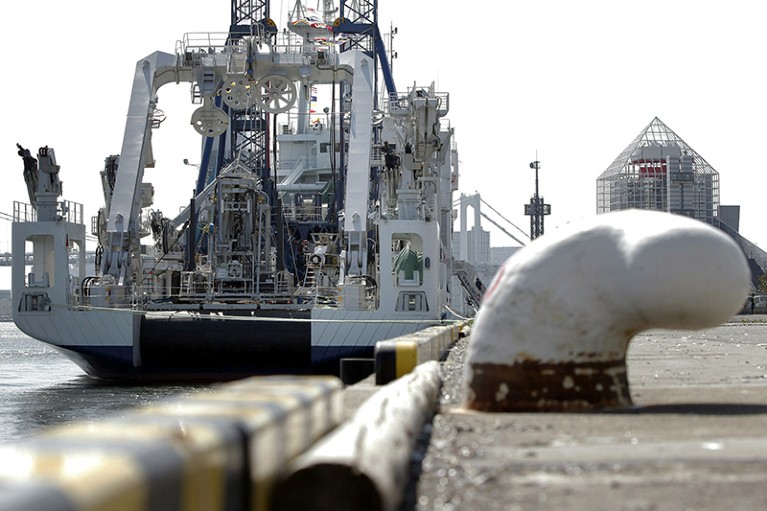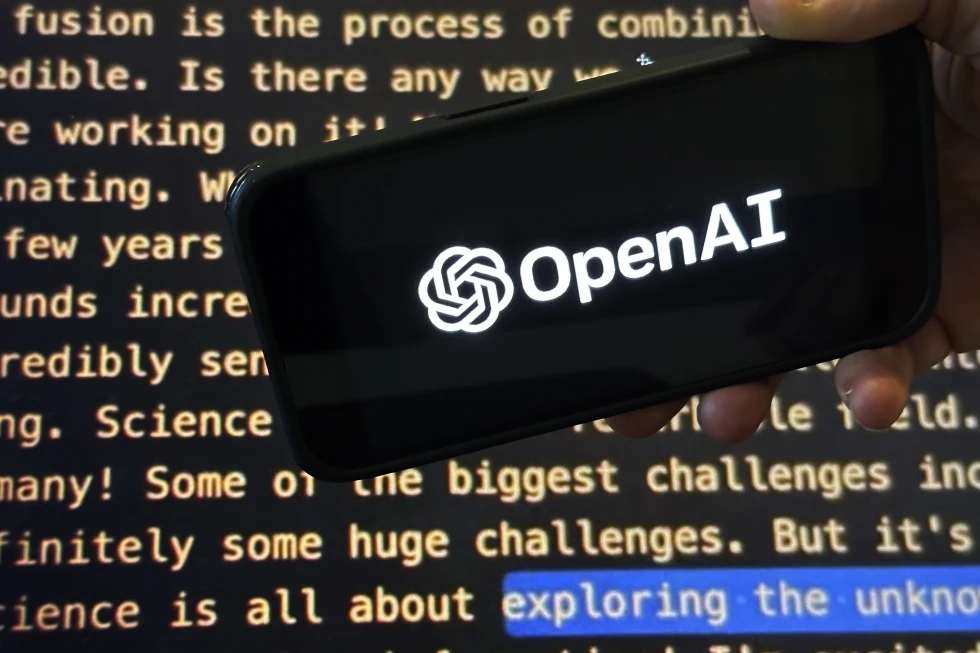Hsinchu-based ReTech Environmental Solutions has developed a way to recycle semiconductor waste into export-grade cryolite, reshaping its entire business model.
ReTech’s breakthrough began in June 2017, when ReTech Chair Lu Tsung-lung (盧宗隆) received an unexpected call from TSMC’s Taichung facility requesting a meeting. Initially skeptical, Lu spent a week preparing and was surprised when the TSMC team approved a trial after a 90-minute pitch.
ReTech was a small wastewater treatment firm with annual revenue below NT$200 million (US$6.63 million) focused on system integration for high-tech factories. What caught TSMC’s attention was its unique technology for converting hydrofluoric acid (HF) waste-commonly produced in chip fabrication-into sodium fluoroaluminate, also known as cryolite.
Traditionally, HF waste is recycled into low-value sodium fluosilicate for use in glass and aluminum processing. But cryolite, though more niche, commands a much higher price as a flux in aluminum smelting. Recognizing its potential, ReTech began cryolite R&D in 2010 and filed patents in both Taiwan and the US—a move that would later raise its profile with TSMC during supplier screening.
Their business model evolved into two revenue streams: ReTech designs and licenses recovery systems for TSMC fabs, and also buys back the recovered cryolite for refining and global export.
“We used to only think about reducing waste,” said Lu. “We didn’t realize recycling could actually be profitable.” TSMC’s involvement shifted that mindset and led ReTech to develop a scalable product line.
The company’s environmental systems VP, Chung Yu-min (鍾侑民), said their strength lies in customizing wastewater treatment protocols. This expertise was critical to adapting their process for cryolite recovery, which requires precise control of chemical conditions and equipment.
ReTech installed a demo unit at a TSMC fab in 2018, but entering full production took another three and a half years. “They never gave us a fixed spec—just new questions every week: What’s the optimal temperature? What’s the purity margin?” Lu said, recalling the painstaking process.
Still, he welcomed the challenge, noting that HF, nicknamed “bone-dissolving acid,” requires the highest safety and quality standards.
Working with TSMC also gave ReTech access to highly segregated waste streams, increasing the concentration of HF and improving cryolite yield. Today, that same system enables the company to export refined cryolite worldwide, marking a dramatic transformation from engineering contractor to global materials supplier.




